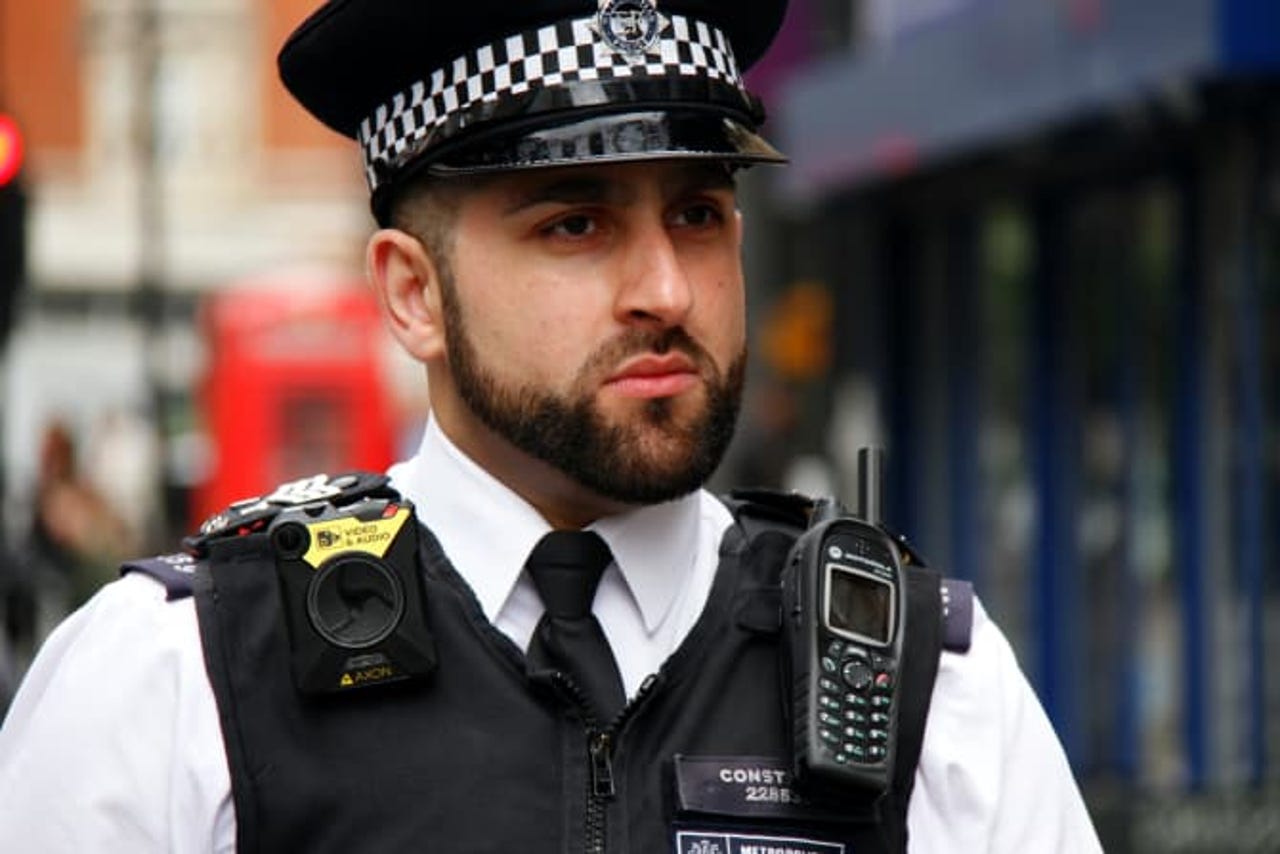22,000 London police are getting wearable cameras to video crime


22,000 police will be equipped with cameras on their uniforms.
The largest rollout of body worn video cameras by law enforcement anywhere in the world has started in London, with the city's Metropolitan Police Service set to equip a total of 22,000 officers with the wearable video and audio recording technology.
Frontline police across all of London's 32 boroughs -- including those equipped with firearms -- will be equipped with video cameras. The move follows an 11-month trial across ten areas of the city, alongside a consultation with the general public.
The idea is that by wearing the cameras, there is greater transparency into the actions of officers, along with the opportunity to help bring about faster convictions of criminals who know that their actions have been recorded. The Met says the trial has been particularly successful in convicting those guilty of domestic abuse as there's been an increase in earlier guilty pleas by those who know they're on camera.
"Body Worn Video will support our officers in the many challenging situations they have to deal with, at the same time as building the public's confidence," said Metropolitan Police Commissioner, Sir Bernard Hogan-Howe, speaking at the rollout of cameras to officers in Lewisham.
Body worn cameras were supposed to be rolled out to the Metropolitan Police in March this year, but the scheme was delayed.
"Our experience of using cameras already shows that people are more likely to plead guilty when they know we have captured the incident on a camera. That then speeds up justice, puts offenders behind bars more quickly, and most importantly protects potential victims," he added.
The cameras are being supplied by Axon Public Safety, which won a three-year contract worth £3.4 million with Scotland Yard.
In order to safeguard the footage recorded on body mounted cameras, the Met says video is automatically uploaded to secure servers once the device is docked. Any video footage which isn't flagged for use as evidence or other police proceedings will be automatically deleted within 31 days.
In addition to this, any member of the public who has had footage of them collected can request, in writing, to obtain the video under freedom of information and data protection laws, although this must be within 31 days.
While the police say the use of body-worn cameras is able to aid them in fighting crime, there are also concerns about what they mean for privacy.
"The growth of use of body-worn cameras in the UK reflects an increasing acceptance of surveillance technologies as tools for public safety, but the issues of privacy, ethics, legislation, and cost are still barriers to wider adoption," says Saverio Romeo, principal analyst from Beecham Research, and author of a recent report into the role of body worn cameras in public safety.
Nonetheless, Romeo suggests cameras do have a role in improving the relationship between the police and the general public. "We are seeing body-worn cameras for policing gain global appeal driven by the need for accountability, a reliable source of evidence, protection for police officers from false accusations, and to increase trust between police and the public," he says.
Speaking at the rollout of the scheme, London Mayor Sadiq Khan said the cameras will make a "real difference" to how officers can do their jobs.
"Body-worn video is a huge step forward in bringing our capital's police force into the 21st century, and encouraging trust and confidence in community policing. This technology is already helping drive down complaints against officers and making them more accountable, as well as helping to gather better evidence for swifter justice," he said.
However, not all of the Met's technology is cutting-edge: the force is still running tens of thousands of desktops on the obsolete Windows XP operating system.